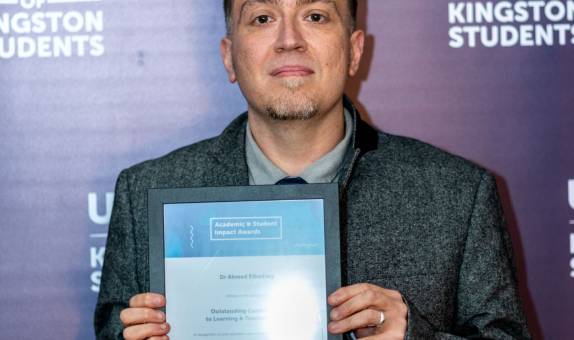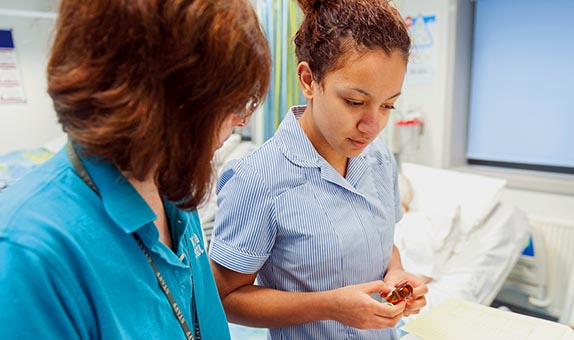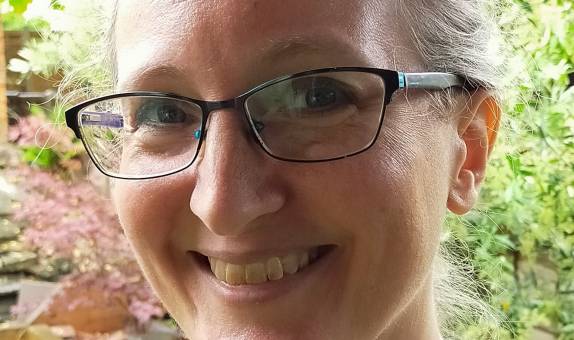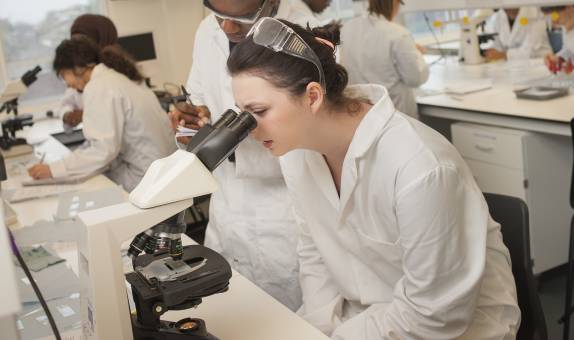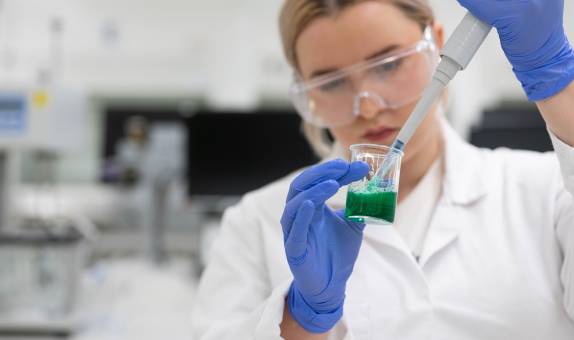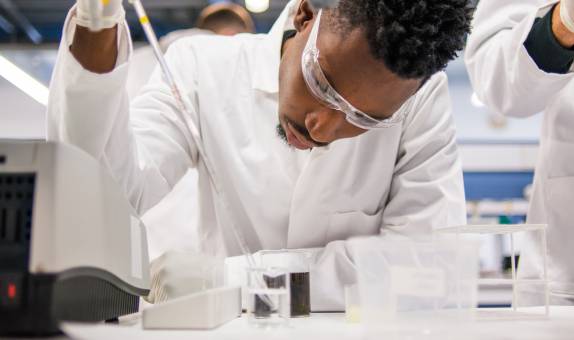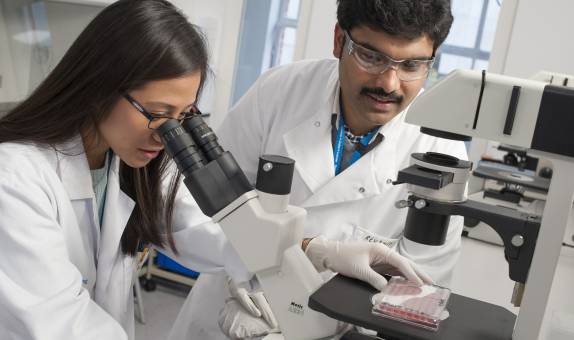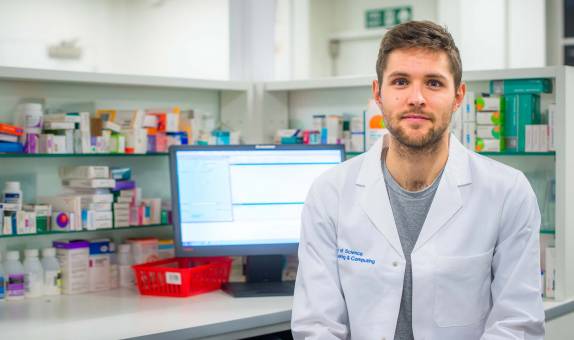Science foundation year

Teaching Excellence Framework (TEF) Gold award
Our commitment to high quality teaching has been recognised with a TEF Gold rating. The University has received an overall rating of Gold, as well as securing a Gold award in the framework's two new student experience and student outcomes categories.
Why choose this course?
We recognise that there are many routes to success at degree level. Our science foundation year specifically caters for those who lack the traditional entry qualifications to join the first year of a science degree.
You are likely to be someone with either non-science-based qualifications, someone who has tried science-based subjects but has yet to realise their potential or are a mature student, with skills and experience from employment, who wants to return to education.
The foundation year has the benefit of being part of the extended degree. It gives you access to a range of activities and staff on the degree programme that you will continue your studies on.
The foundation year in science is taught at the University and you'll have access to all its facilities. Subject materials and teaching are tailored to degrees at Kingston and you'll develop practical, technical and communication skills, and apply knowledge to real-life problems.
The foundation year is currently being updated for 2025/26 entry.
This foundation year is available with these courses:
Choose your pathway
- Biochemistry BSc (Hons)
UCAS code: C708 - Biomedical Science BSc (Hons)
UCAS code: B948 - Biological Science BSc (Hons)
UCAS code: C118 - Chemistry BSc (Hons)
UCAS code: F108 - Environmental Science BSc (Hons)
UCAS code: F908 - Environmental Science with Hazards & Disasters BSc (Hons)
UCAS code: F821 - Forensic Science BSc (Hons)
UCAS code: F411 - Geography BSc (Hons)
UCAS code: F808 - Nutrition BSc (Hons)
UCAS code: B401 - Pharmaceutical Science BSc (Hons)
UCAS code: B208 - Pharmacology BSc (Hons)
UCAS code: B212 - Sport and Exercise Science (Nutrition) BSc (Hons)
UCAS code: CB64 - Sport and Exercise Science (Coaching) BSc (Hons)
UCAS code: CX6D - Sport and Exercise Science BSc (Hons)
UCAS code: C608
| Where taught | Attendance | UCAS code | Year of entry |
|---|---|---|---|
| Kingston University | 1 year full time | UCAS codes are included on the relevant webpage for the course you would like to study | 2025 |
| Main Location | Penrhyn Road |
Reasons to choose Kingston
- This foundation year helps you prepare for your intended degree, providing you with essential skills for success.
- You'll gain extensive practical experience in brand-new laboratories, recently opened as part of a £6.8 million investment.
- You will develop your problem-solving skills through project-based learning as applied to real-world scenarios.
What you will study
The foundation year provides a supportive environment in which you can build your confidence, whilst developing the academic and practical skills alongside the subject knowledge to continue on the degree of your choice.
Modules
Throughout the foundation year, you will study a range of subjects relevant to subsequent study in Year 1 of your degree and beyond. These subjects are supported by modules which develop your study and mathematical skills. The broad scope of subjects enables study in a range of subject areas and, in some instances, allows flexibility of choice of intended degree route. Subjects start at an elementary level, and there is a strong emphasis on the development of practical skills. In the Skills Module you will also undertake a project where you focus on a topic relating to your degree subject.
Core modules
Professional Success
30 credits
This is a core module for all students on the Foundation year in Science, Engineering and Computing. It complements and supports the subject content of the other modules within the programme. The focus of the module is the development of a range of academic study skills, contextualised to the student's chosen subject. This in turn allows students to become independent, resilient and reflective learners who will be able to succeed in subsequent levels of degree study.
The module provides an early appreciation of the career opportunities that the degree leads to, which in turn allows students to determine the employability skills they need to develop. To boost employability, the basic principles of Business and Project Management are introduced to students in the context of their chosen degree subject. The personal tutor scheme is embedded within the module and is linked to students' development log and aspects of employability.
Foundation Project-Based Learning
30 credits
This is a core module for all students on foundation years in Science or in Engineering and Computing. It is designed to allow students to develop a number of the skills introduced in the Professional Skills module, in particular those relating to critical thinking, problem solving and group work. The focus of the module is on project-based learning as applied to real-world scenarios and/or problems in the degree subject area of the student.
Biological & Chemical Sciences
60 credits
This module is delivered as part of Science pathway in the Foundation Year in Science. The module is core for students intending to continue to Level 4 in a number of life science, forensic, nutrition, sport, chemical and pharmaceutical related degrees.
The module provides an essential introduction to the biological and chemical sciences, through the study of introductory chemistry, biochemistry, organic and inorganic chemistry, cells, tissues, body systems, physical chemistry, genetics and evolution. It also introduces some of the relevant tools and techniques used in modern biology and chemistry.
Future Skills
Knowledge to give you the edge
Embedded within every course curriculum and throughout the whole Kingston experience, Future Skills will play a role in shaping you to become a future-proof graduate, providing you with the skills most valued by employers such as problem-solving, digital competency, and adaptability.
As you progress through your degree, you'll learn to navigate, explore and apply these graduate skills, learning to demonstrate and articulate to employers how future skills give you the edge.
At Kingston University, we're not just keeping up with change, we're creating it.

Entry requirements
Teaching and assessment
Teaching uses a variety of approaches including lectures, seminars and tutorials, workshops and laboratory practical work. Sessions are designed to be active, involving students undertaking small projects and working in groups to solve problems. The use of technology to enhance learning is an important way in which students are supported. Particular emphasis is placed on developing study skills that will help mature applicants who are returning to education and those from non-science backgrounds.
Assessment includes a mixture of coursework and examination. Coursework may take the form of report writing, practical data reports, case studies and presentations with emphasis on real world problems. Examinations take place at the end of the year, giving you the opportunity to settle back into education and the course. The style of assessment provides a natural progression to Year 1 of your chosen degree.
Facilities
There is a wide range of facilities for practical work at our Penrhyn Road campus, where this course is based. You will have access to a modern environment with the latest equipment, including:
- the £9.8 million Eadweard Muybridge building with state-of the art laboratories
- an exercise physiology and biomechanics lab
- modern applied biology and chemistry laboratories specialist equipment, such as electron microscopes and spectrometers
- computing laboratories and a team of IT technicians to offer assistance
- a newly refurbished state-of-the-art nutrition kitchen.
The libraries offer:
- subject libraries, plus a free inter-library loan scheme to other libraries in the Greater London area
- online database subscriptions
- a growing selection of resource material.
Who teaches this course?
Faculty staff have a wide range of experience across research and industry and continue to practise and research at the cutting edge of their discipline. This ensures our courses are current and industry informed, meaning you get the most relevant and up-to-date education possible.
Staff will use their experience and professional networks to hone your skills and shape you into the next generation of science, technology, engineering and mathematics (STEM) graduates.
Postgraduate students may run or assist in lab sessions and may also contribute to the teaching of seminars under the supervision of the module leader.
Course fees and funding
Additional costs
Depending on the programme of study, there may be extra costs that are not covered by tuition fees which students will need to consider when planning their studies. Tuition fees cover the cost of your teaching, assessment and operating University facilities such as the library, access to shared IT equipment and other support services. Accommodation and living costs are not included in our fees.
Where a course has additional expenses, we make every effort to highlight them. These may include optional field trips, materials (e.g. art, design, engineering), security checks such as DBS, uniforms, specialist clothing or professional memberships.
After you graduate
Success on the course will qualify a student for progression to Year 1 of a bachelors degree at Kingston University. Career opportunities are dependent upon the chosen degree route and are included on the relevant course page.
Course changes and regulations
The information on this page reflects the currently intended course structure and module details. To improve your student experience and the quality of your degree, we may review and change the material information of this course. Course changes explained.
Programme Specifications for the course are published ahead of each academic year.
Regulations governing this course can be found on our website.



